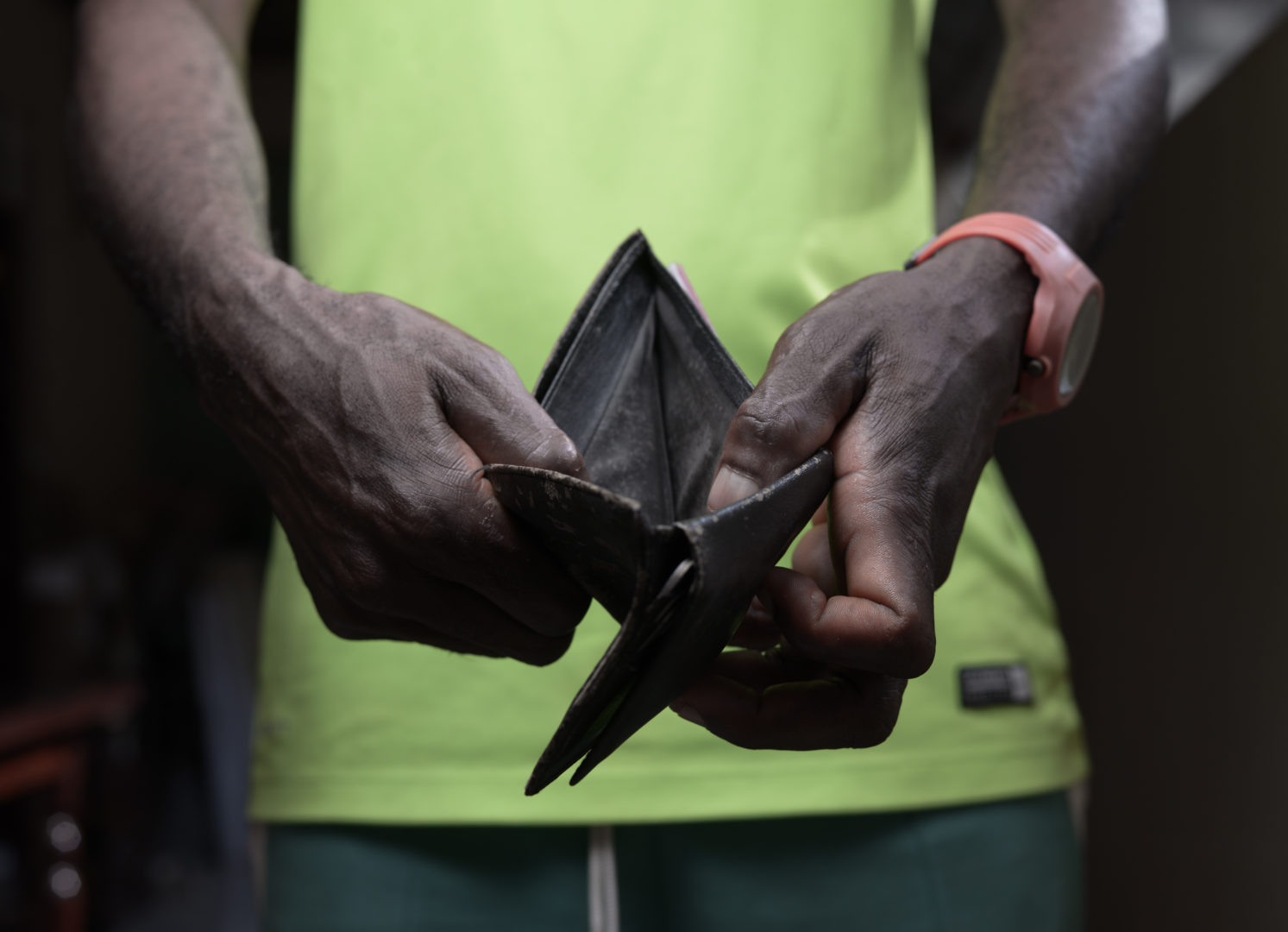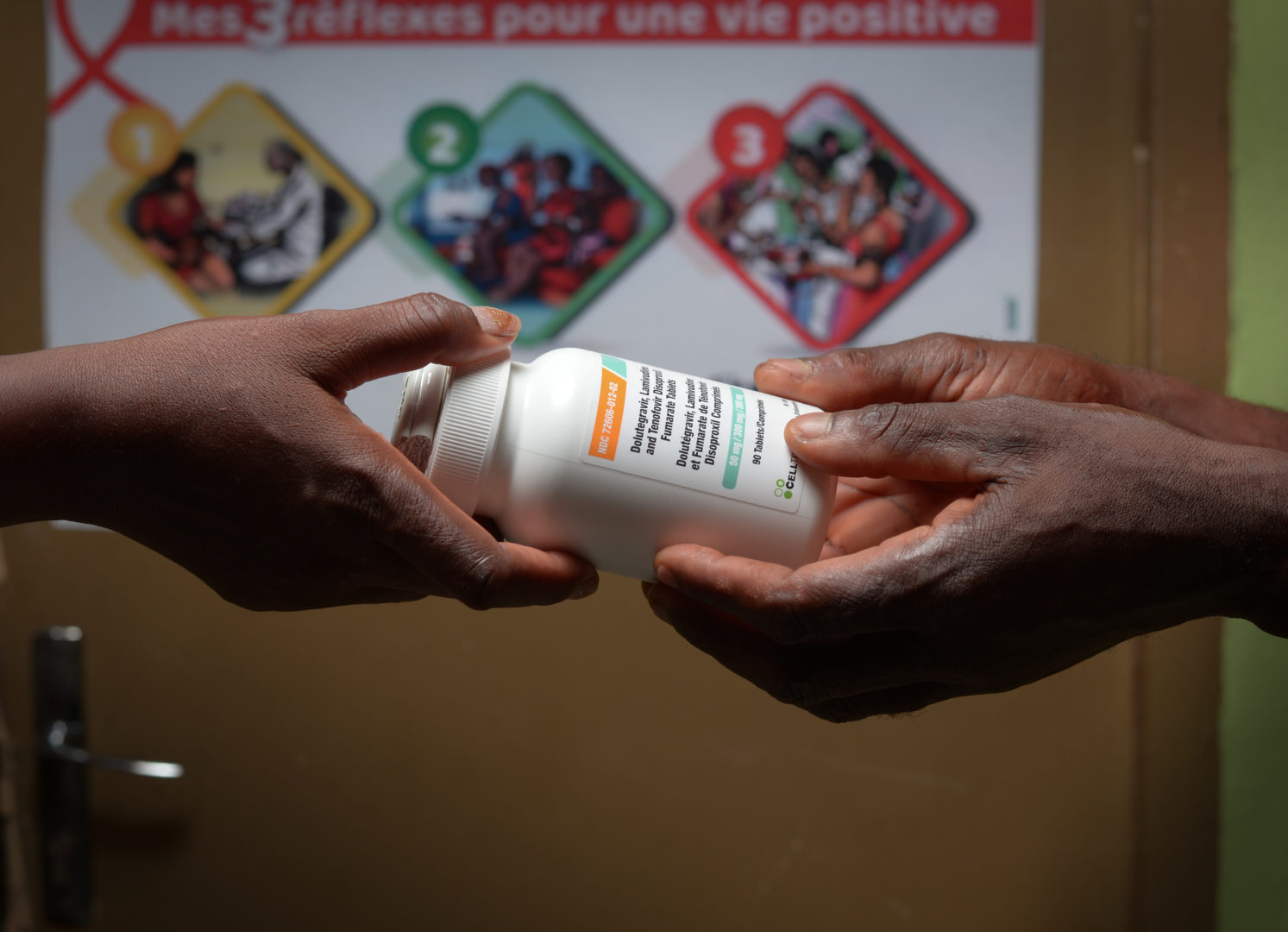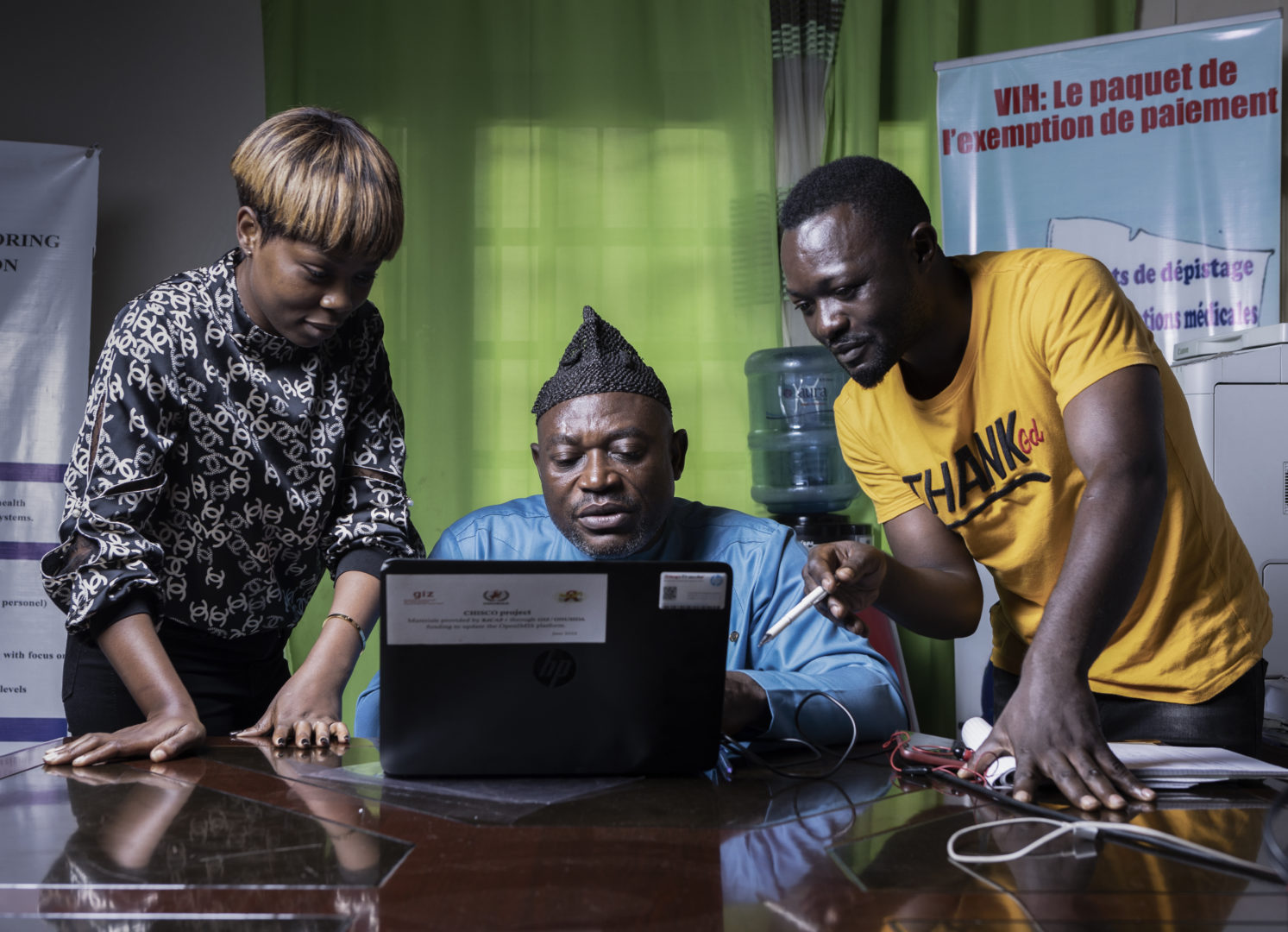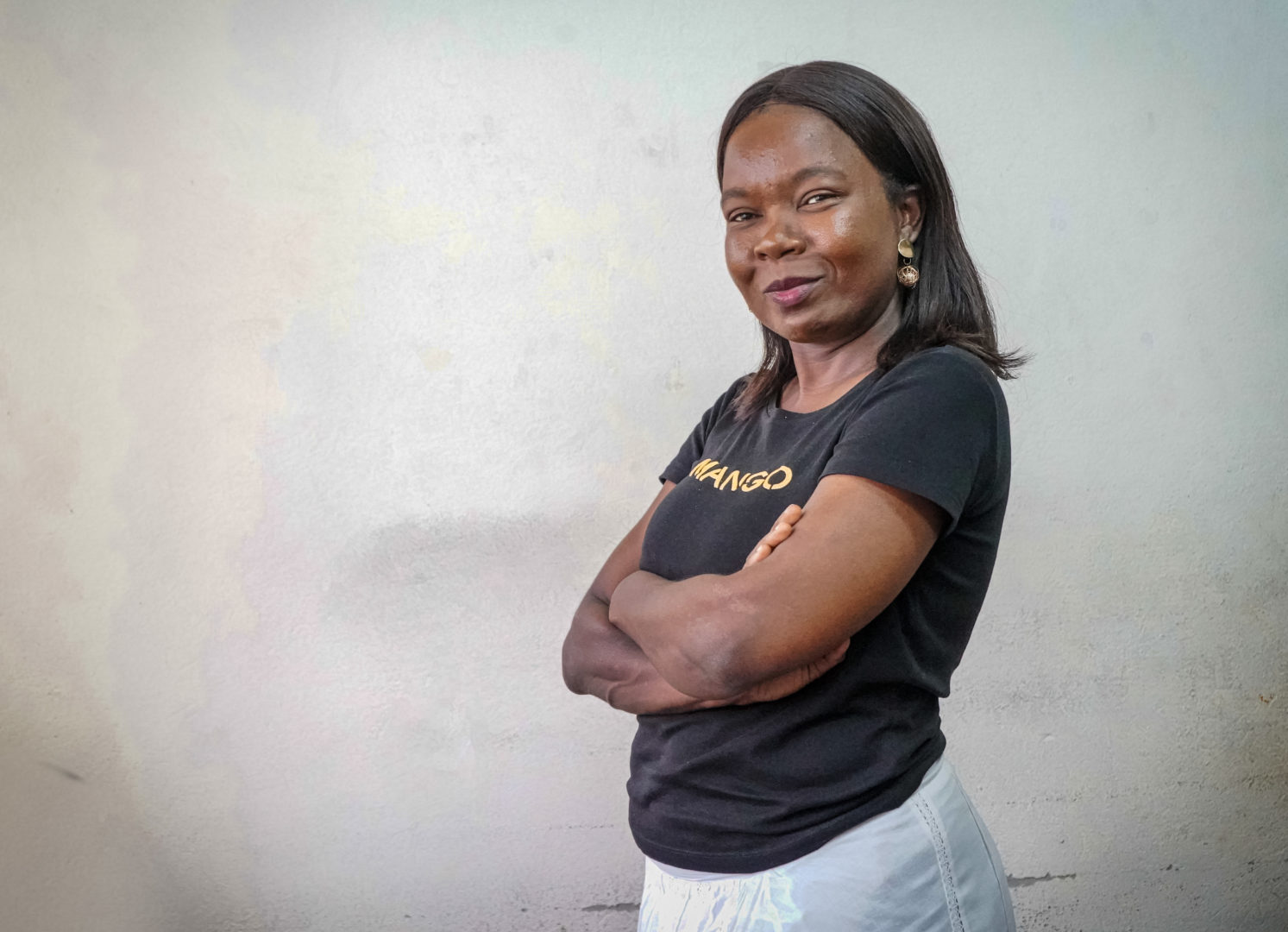

Doing away with user fees in Cameroon changes lives
Sustainable and equitable financing
As part of the “Sustainable and equitable financing” chapter, we explore how the removal of user fees has changed the lives of people living with HIV in Cameroon.
SCROLL DOWN
Elisabeth Emetini’s life has been transformed. Until last year, she had to pay for checkups, lab tests, and other needs related to her medical condition, but now that these services are free so, is she, she says.
“The abolishing of user fees in Cameroon for HIV services has had a real positive effect on me,” she said.
It’s not only less of a strain on her pocketbook, it has also lifted a weight off her shoulders.
“Now I am more motivated to take my HIV medicine because it’s not a hassle to get a prescription and I also have had my viral load tested for free as well as a tuberculosis test done,” the Yaoundé resident said.

Baudelaire Etogue’s life has profoundly changed too. He can use the money to pay for transport and other essentials. In addition, he has had access to additional medical treatment.
“Because of my positive HIV status, I was not allowed to get X-rays or see a dermatologist and that is no longer the case,” he says.
Both are among the 500 000 people living with HIV in Cameroon who can now access a range of key HIV health-care services at public health facilities for free, whereas previously only HIV treatment itself had been free.
UNAIDS, along with partners like PEPFAR and civil society, had raised with the government that direct and indirect fees restrict people getting medical care and often push already poor households deeper into poverty.
The Executive Director of the Cameroonian network of organizations for people living with HIV (ReCAP+), Landom Shey, describes many, many meetings to showcase evidence gathered in health facilities to claim free HIV services. “Due to our hard work, a ministerial decision in April 2019 abolished out of pocket payments for many HIV services,” he says. Implementation began in January 2020.

Deputy director in charge of HIV and AIDS at the ministry of public health, Bouba Haman says that the determined push from UNAIDS, PEPFAR, The Global Fund and other partners, and the need to accelerate progress in the HIV response, encouraged the Cameroonian government to end user fees.
There is still progress to be made, Mr Etogue says, including on coverage of a broader set of products. “I have to pay for the health practitioner’s surgical gloves during certain procedures,” he says.
Communicating the new measures to health providers and monitoring if fees have been eliminated has kept ReCAP+ and partners busy. The government has ensured that replacement funds reach most health facilities on time, though the reimbursement has faced delays in remote areas.

Overall, the results have been encouraging. According to ReCAP+, 90% of people living with HIV have benefitted from free HIV services as of March 2022.
“Last year with the support of the United States Agency for International Development (USAID), we set up a community participatory monitoring system in 147 health districts across 10 regions in the country,” Mr Shey said.
Dr Edith Temgoua, a technical expert on HIV medicine at the Comité National de Lutte contre le SIDA (CNLS), the HIV arm of the Cameroonian Health Ministry, has also seen positive results.

“Originally the aim was to attract more pregnant women and people living with HIV and it has worked,” she says. “Pre-natal consultations have risen to 87% in 2021 from 78% in 2019 and viral load coverage shot up to 62% from 34% in the same period.” Achieving viral suppression is a sign of successful antiretroviral therapy (ART) among people living with HIV. To assess the viral suppression coverage rate however, people living with HIV taking medicine should get viral load testing.
Cameroon’s commitment to universal health coverage will benefit everyone, Dr Temgoua says, and will help advance further life-saving reforms. “User fees are to become a thing of the past, with additional changes to come.”
She explained that Cameroon’s commitment to universal health coverage can only improve things for everyone. “User fees are to become a thing of the past with additional changes to come.”

"No time for retreat, invest in health in Africa," says UNAIDS Finance expert

Investing in health cannot be postponed
Charging user fees at public health facilities restricts people’s access to services and pushes already-impoverished households deeper into poverty. User fees and other out-of-pocket expenditures are the major causes of catastrophic health spending, which affects almost one billion people annually. Free access to health-care services at public health facilities, in contrast, increases use and advances equitable access, it can improve health outcomes and boost progress toward achieving global HIV and health targets.
Despite this, user fees are still being levied at clinics and hospitals in many countries, prompting calls and campaigns for the removal of user fees for HIV, tuberculosis and related services at public health facilities, including maternal care clinics.
All pictures: UNAIDS/Rodrig Mbock
Even before the COVID-19 pandemic and its associated economic disruptions, the resources available for HIV in low- and middle-income countries had been levelling off. In this chapter, read more about:
